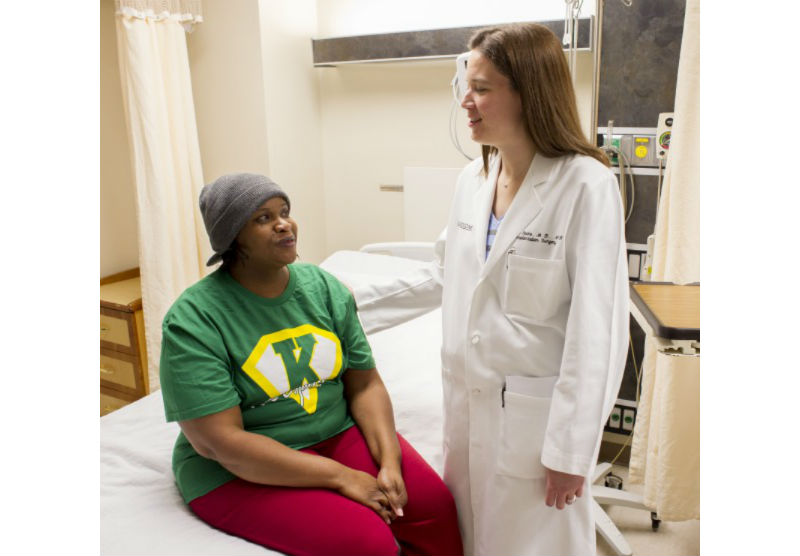In a first-of-its-kind national event focused on increasing organ donation, the White House announced Monday at the Organ Donation Summit that the University of Alabama at Birmingham Division of Transplantation will be part of two national efforts to increase access to organ transplants and reduce the number of patients awaiting kidney transplantation. The endeavors, designed specifically to increase the number of living donor kidney transplants, will tailor a Live Donor Champion model for African-Americans and teach patients in need of transplant how to set up their Facebook page in the way that best tells their story to increase their chances of finding a living kidney donor.
The Live Donor Champion model for African-Americans is part of a comprehensive program to teach patients how to leverage their personal connections and social networks to raise awareness about the need for organ donors and to help identify potential live donor candidates. The UAB program will be known as the Living Donor Navigator Program, according to Michael Hanaway, MD, surgical director of the Kidney Transplant Program, and Jayme Locke MD, director of the Incompatible Kidney Transplant Program.

UAB will be implementing a Living Donor Navigator Program to teach African-American patients how to leverage their personal connections and social networks to raise awareness about the need for organ donors and to help identify potential living donor candidates. (Credit: University of Alabama Birmingham)
“African-Americans face a significantly higher incidence of end stage renal disease and disproportionately low rates of live donor transplantation, so the need in this community is real and vital,” Locke, who will oversee the UAB program, said. “The Living Donor Navigator Program, which has been tested at Johns Hopkins University and other places, is associated with an over fivefold increase in identification of potential live donor candidates.”
The Living Donor Navigator Program will help patients identify someone in their family who can be a Living Donor Champion. The person they identify will be trained by UAB on the donation process and how to approach potential donors for their loved one in need. Johns Hopkins University, Northwestern University and UAB will all lead different initiatives within the Live Donor Champion model.
In the second program, UAB will be part of a collaborative effort with Johns Hopkins University designed to help patients in need of live donor transplants leverage their social networks to find potential living kidney donors. The program will teach transplant patients how to use a specially designed Facebook app to share their story. The hope is that this will help those in need have a better opportunity to find a living donor. Locke, the co-principal investigator, says UAB patients in need of kidney transplants will begin participating in both programs by the end of the year.
As far back as a decade ago, UAB’s kidney transplant program began laying the groundwork to build a paired exchange and incompatible transplant program that would help patients who are difficult to match. New technologies emerged that enabled researchers and clinicians to specifically define harmful antibodies that are present in many previously transplanted patients.
The result of the work has led to the world’s longest kidney transplant chain at UAB. Sixty-five people have been transplanted since the chain began in December 2013. A variety of patient stories have been chronicled online at www.uab.edu/kidneychain.
UAB also is involved in national research efforts to ensure transplanted organs last as long as possible.




